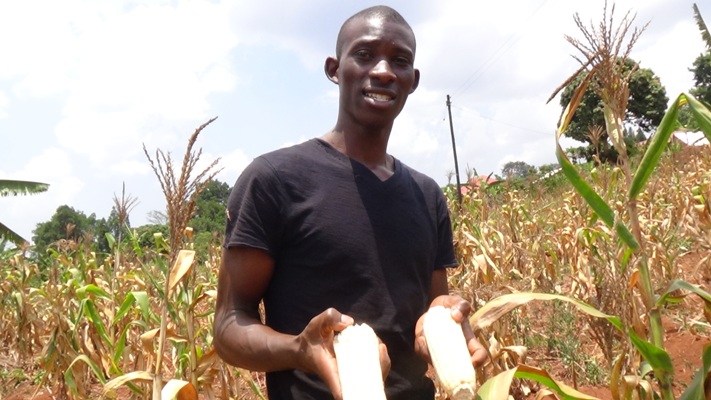The price of maize grain has shot up once again with middlemen in Kisenyi Kampala now quoting a kilo of the raw produce at between UGX900 and UGX950.
This comes only less than a year ago when majority of Uganda’s population was lamenting the crash in the price of maize . The heavy rains that we had received in 2017 and 2018 was blamed for the bumper harvest especially of maize.
In actual sense however, this was rather a systematic failure especially on the part of the government, to put in place mechanisms that would enable farmers retain the produce a little longer and release it when prices improve.
Because of the glut in the market but also the losses farmers suffered, majority didn’t cultivate maize in the second planting season of 2018. This has triggered instead scarcity of the commodity.
But our leaders need to be ashamed of themselves. At the height of the maize glut crisis, the government offered solutions which were to many observers deemed unsustainable; they included offering traders loans to buy produce from farmers at a minimum of UGX 500 per kilo.
As it turned out, the proposal was approved but it appears that it benefited only the maize dealers and the technocrats who processed the loans.
One of the biggest beneficiaries of the lending programme was the Uganda Grain Council. It purchased considerable amounts of grain and exported it to Kenya. Although some of the maize grain destined for Kenya was rejected because of being contaminated with aflatoxins arising from poor post-harvest handling, as one official from the organisation has revealed, much of it was bought by Kenya’s National Cereals and Produce Board (NCPB)
Official 2018 statistics from the government of Uganda confirm that for the first time in many decades, Uganda’s exported goods worth more than it imported from Kenya thanks to maize sales to Kenya. As our farmers were rushing to dispose of maize for lack of sound storage facilities, Kenya was ready to exploit our weaknesses and inneficiencies.
What must we do?
Government really needs to take up this issue of price fluctuations more seriously. They distort markets, cause poverty through inflation which erodes people’s purchasing power and discourages investment across the entire value chain, including when farme rs fail to repay loans they acquire in the hope of making a profit by investing in agriculture.
Government needs to take the first step by supporting producer cooperatives to acquire modern drying and storage facilities not just for maize but also for other grains. In order to control prices, and also ensure food security, government needs to establish a produce buying entity similar to that of Kenya with which it can guarantee availability of food and feed at a later time.
There is hope that through OWC, things are looking up and that there are plans to support value addition initiatives. But as we have emphasised, these initiatives must put farmer organisation and participation at the centre of the planning process.
Farmers themselves must start to act in a United way. Mobilize and pool savings to acquire expensive equipment. The Uganda Development Cooperation (UDC) should prioritiseorganised farmers and mobilize funding for them to access longer-term agricultural financing.
Together we can all be able to weather the storms of poverty, instead of just a few well-connected individuals benefitting from agriculture.








